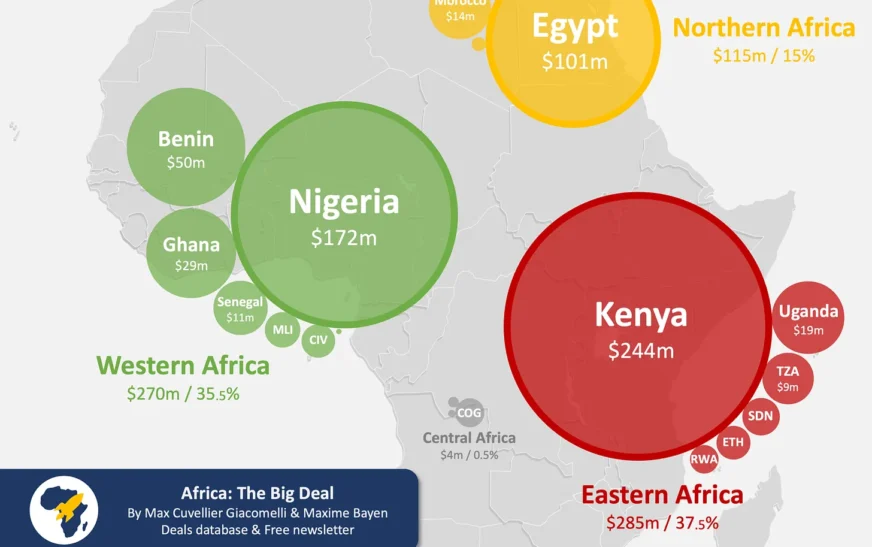The e-commerce landscape in Africa is a dynamic and rapidly evolving arena, presenting both formidable challenges and unprecedented opportunities. As the continent embraces digital transformation, small businesses are leveraging readily available technologies like WordPress, social media, Mobile money and WhatsApp to not only survive but thrive in this burgeoning market.
The E-commerce Boom
Africa’s e-commerce market is experiencing exponential growth, driven by increasing internet penetration, the rise of mobile technology, and a youthful, tech-savvy population. According to a report by the International Finance Corporation (IFC), the e-commerce sector in Africa is expected to reach $75 billion by 2025. This surge is transforming the way businesses operate, opening up new avenues for trade and commerce.
Challenges Facing E-commerce in Africa
- Infrastructure Deficits
- The lack of robust infrastructure, such as reliable electricity and efficient logistics networks, remains a significant hurdle. Poor road networks and inadequate postal services complicate the delivery process, affecting the overall customer experience.
- Payment Systems
- Limited access to secure and efficient payment systems is a major barrier. Many consumers still rely on cash transactions, and the adoption of digital payment methods is slow. High transaction fees and limited financial inclusion exacerbate this issue.
- Regulatory Environment
- Inconsistent and often outdated regulations across different countries create a complex environment for e-commerce businesses. Navigating these regulatory landscapes requires significant resources and expertise.
- Trust and Security
- Building trust among consumers remains a challenge. Concerns about fraud, counterfeit products, and data privacy deter many potential buyers from engaging in online transactions.
Opportunities for E-commerce Growth
- Mobile Commerce
- Mobile phones are the primary means of internet access for many Africans. The proliferation of affordable smartphones and mobile data plans has enabled mobile commerce (m-commerce) to flourish. Businesses can tap into this trend by optimizing their platforms for mobile users.
- Social Media and Messaging Apps
- Social media platforms like Facebook, Instagram, and WhatsApp have become powerful tools for e-commerce. Small businesses are increasingly using these platforms to reach customers, showcase products, and facilitate sales. WhatsApp, in particular, offers a direct and personal way to engage with customers, allowing businesses to build stronger relationships and provide better customer service.
- Fintech Innovations
- The rise of fintech companies is revolutionizing payment systems in Africa. Mobile money services, such as M-Pesa in Kenya, have provided millions with access to financial services, enabling secure and convenient online transactions. Innovative fintech solutions continue to emerge, addressing the payment challenges and promoting financial inclusion.
- Local Marketplaces
- Local e-commerce platforms, such as Jumia and Konga, are playing a crucial role in shaping the African e-commerce landscape. These platforms understand the unique challenges of the region and offer tailored solutions that cater to local needs. Partnering with these marketplaces can help businesses reach a broader audience.
- Government Initiatives
- Governments across Africa are recognizing the potential of e-commerce to drive economic growth. Initiatives aimed at improving digital infrastructure, enhancing regulatory frameworks, and promoting digital literacy are gaining momentum. These efforts create a more conducive environment for e-commerce businesses to thrive.
Small Businesses as the Backbone of African E-commerce
Small businesses are at the forefront of the e-commerce revolution in Africa. They are agile, innovative, and quick to adopt new technologies. By leveraging social media and messaging apps, small businesses can overcome some of the significant barriers to entry in the e-commerce space.
The challenges facing e-commerce in Africa are significant but not insurmountable. With the continued growth of mobile technology, the rise of innovative fintech solutions, and the increasing adoption of social media and messaging apps, the future of e-commerce in Africa looks promising.
Small businesses, in particular, stand to benefit immensely from this digital transformation. By embracing these technologies and adapting to the unique challenges of the African market, they can unlock new opportunities for growth and success.
As the continent continues to evolve, e-commerce will undoubtedly play a pivotal role in shaping Africa’s economic future. For businesses willing to navigate the complexities and seize the opportunities, the potential rewards are immense. The e-commerce revolution in Africa has only just begun, and its impact will be felt for generations to come.










